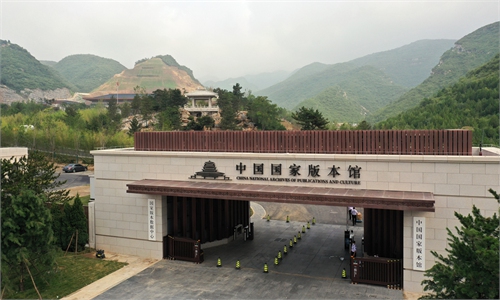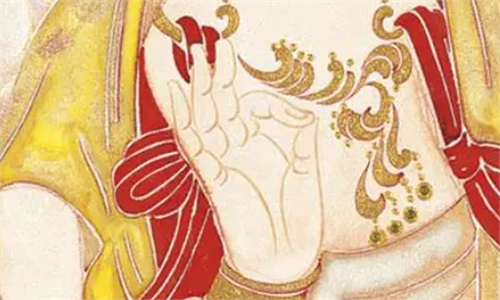
The 7th China-International Organ Donation Conference and the Belt & Road Symposium on Organ Donation and Transplantation International Cooperation Development kicks off in Nanning, South China's Guangxi Zhuang Autonomous Region on December 9, 2023. Photo: Zhao Yusha/GT
China saw more than 40,200 deceased organ donations from 2015 to the end of 2022, with 120,100 major organs donated. Additionally, more than 6.55 million people have voluntarily registered for organ donations, according to the China Organ Transplant Development Foundation (COTDF).
The COTDF revealed the figure at the 7th China-International Organ Donation Conference and the Belt & Road Symposium on Organ Donation and Transplantation International Cooperation Development, which kicked off in Nanning, South China's Guangxi Zhuang Autonomous Region, on Saturday.
Currently, China ranks second in the world and first in Asia in terms of the number of organ donations, benefiting numerous patients in need. The COTDF said that 5,628 deceased organ donations were made in 2022, an increase of 6.75 percent compared to 2021.
More than 20,000 organ donations are made in Chinese mainland each year, ranking second in the world in terms of data. However, organ donors per million people (PMP) is less than 4 percent, which is far from satisfactory compared to the 47 percent in developed countries, Huang Jiefu, chairman of China Human Organ Donation and Transplantation Committee and chair of the COTDF Advisory Board, told the Global Times on Saturday.
He pointed out that there are not enough hospitals in China to satisfy patients' demand for organ transplants. "China currently has only slightly more than 70 hospitals that perform heart and lung transplants. Thus, there is still a shortage of doctors and hospitals to meet the needs of the people," said Huang.
In October, China's State Council held an executive meeting that adopted a draft revision to the regulations on donation and transplantation of human organs.
The government aims to establish a system for tracing and supervising the whole procedure of donating and transplanting human organs. It will enhance ethical reviews on how human organs are obtained and crack down on crimes involving human organs, according to the meeting.
Talking about the revision, Huang used the phrase "scraping poison off the bone" to describe the determination in China's organ donation reform.
He said that under the leadership of the central government, this reform has achieved significant victories and has been widely recognized by the international community. The revision of the regulation demonstrates the Party and the country's emphasis on organ donation, providing strong legal protection for the high-quality development of the organ donation cause, said Huang.
Huang said that the word "donation" carries special meaning. With the coming of the regulation, organ donations will be more transparent, and it also calls for more people to get involved in organ donations and transplants. In the future, it is hoped that China's organ transplantation technology will spread to more countries in the Belt and Road Initiative via the Organ Donation and Transplant under the Framework of the Belt and Road Initiative, said Huang.
Talking about China's recent achievements in organ transplantation, John Fung, president-elect of the Transplantation Society, told the Global Times that in terms of survival, China meets international standards.
"The primary accomplishment of China's transplant efforts is that a country that had very limited transplants 30 years ago is now able to compete with any other transplant program in the world in terms of quality," said Fung.
However, Fung also mentioned that the primary challenge in China is that "it has a very large population and still not enough access to transplants. There are many barriers to transplants for the common people in terms of costs as well as a shortage of organs."
Yet he said that China is getting there as the trajectory of donations in the country is increasing fast, thus he is confident that five years from now China will move to a much higher rate of donation.
The Belt & Road Symposium on Organ Donation and Transplantation International Cooperation Development held a launch ceremony, during which those in attendance agreed to establish a series of action plans in the areas of leadership, management, quality control and technological innovation in organ donations and transplantations based on the principles outlined by WHO Guiding Principles on Human Cell, Tissue and Organ Transplantation.
Through continuous strengthening of interaction, deepening of mutual trust, and fostering of friendship, the goal of self-sufficiency in organ donation will be achieved.
Fung also mentioned that there is an organized conspiracy on the international stage that tries to play down the accomplishments of China's organ donation experience, by feeding misinformation about transplants in China to further damage the country's reputation.
For example, a new wave of accusations of "organ harvesting" in China has emerged. Following some Western media reports from the China Tribunal, which accused the Chinese government of "harvesting organs from Falun Gong practitioners" and Uygurs "detained in camps" since June 2019, VICE magazine's France version also released a new report on the same topic on June 19, offering more so-called "evidence."
By digging into those stories, the Global Times has found out that such claims are lies interwoven by members of the Falun Gong cult, separatists from Xinjiang and overseas anti-China forces with the purpose to further paint China as a devil mistreating minorities in Xinjiang, to smear the country's organ transplantation and donation system and its anti-terrorism work in Xinjiang, and to instigate the international community to further pressure China.
In response to this recent slander, Huang said that China's reform on organ transplantation is to keep friends close and keep enemies closer. "You can never wake up someone who is pretending to be asleep… we are not afraid of those slanders, as long as what we are doing is justified and is on the right course."
Fung suggested that more publications about "China's organ transplantation be disseminated globally for people to understand that China complies with international standards and that their outcomes for transplantations are as good as anybody else's. As transplantation society president I will do my best to make it more open for the world to understand and appreciate w



